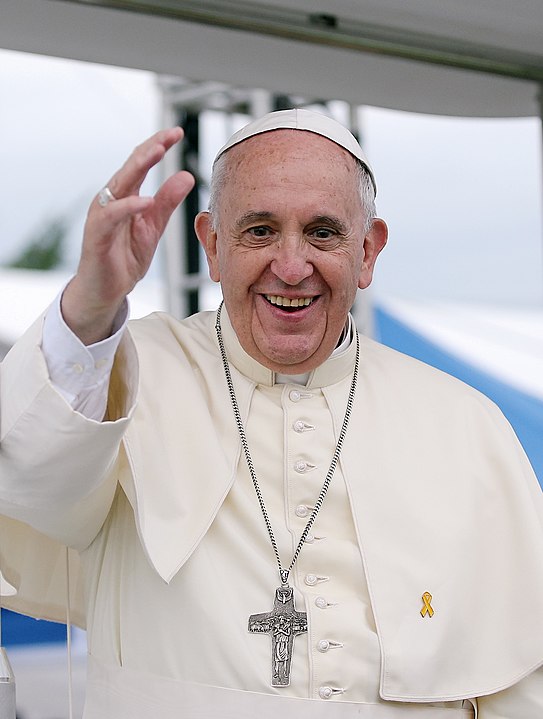
- Details
- By Jenna Kunze
First Nation leaders and residential school survivors are in Rome, Italy, this week to ask Pope Francis for an apology for the Catholic Church’s more than 100-year role in operating Indian Residential Schools for Indigneous youth in Canada.
The trip, which includes the Assembly of First Nations, Métis National Council, Inuit Tapiriit Kanatami, and Canadian Bishops, has twice been postponed since last summer due to Covid-19 concerns.
The Pope originally agreed to the meeting last June, in response to the discovery of the remains of 215 Indigenous children in unmarked graves at a former Catholic-run Indian residential school site in Kamloops, British Columbia. The following month, the Cowessess First Nation– 1600 kilometers away from Kamloops– announced the discovery of as many as 751 unmarked graves at the former Marieval Indian Residential School in the province of Saskatchewan.
In June, Pope Francis expressed sorrow about the Kamloops discovery in his regular Sunday morning address at Saint Peter’s Square in Vatican City, but he offered no official apology for the role the Catholic Church played.
Since then, more and more First Nations have conducted their own ground penetrating radar at the sites of former residential schools, collectively finding thousands more children.
Today, over 1,400 Indigenous childrens’ remains have been located, including: 215 in Kamloops, 182 in Cranbrook, and more than 160 found on Penelakut Island, all in British Columbia, and 751 in Marieval, Saskatchewan, 50 in Williams Lake, British Columbia, and 54 in Keeseekoose First Nation in Saskatchewan.
The Pope will meet with the Indigenous delegation several times over the course of the week, according to a press release from the Canadian Conference of Catholic Bishops. A final audience with all participants will take place on Friday, April 1, 2022.
Indigenous delegates say that true healing can begin with an apology from the Pope, but they will ask him to come to Indian Land in Canada to give that apology, according to Canadian First Nation journalist Brandi Morin (Cree, Iroquois).
Morin, who is traveling with the Indigenous delegation on behalf of Al Jazeera English, is posting live updates on her Instagram page from the weeklong trip. “The goal is to press for an apology for the Catholic Church's role in the residential school system,” Morin said in a video update posted to her Instagram. “There are probably close to 100 delegates, maybe several more with their support people.”
More Stories Like This
‘This is who we are’: Northern Cheyenne Tribe reclaims cultural belongings from UMIndian Gaming Association Condemns CFTC Over Prediction Markets, Warns of Threat to Tribal Sovereignty
Committee Advances 20% Increase to Navajo Child Support Guidelines
Navajo Committee Advances $84M Transportation Improvement Plan
NCAI Passes Two Emergency Resolutions on Immigration Enforcement Activities
Help us defend tribal sovereignty.
At Native News Online, our mission is rooted in telling the stories that strengthen sovereignty and uplift Indigenous voices — not just at year’s end, but every single day.
Because of your generosity last year, we were able to keep our reporters on the ground in tribal communities, at national gatherings and in the halls of Congress — covering the issues that matter most to Indian Country: sovereignty, culture, education, health and economic opportunity.
That support sustained us through a tough year in 2025. Now, as we look to the year ahead, we need your help right now to ensure warrior journalism remains strong — reporting that defends tribal sovereignty, amplifies Native truth, and holds power accountable.
 The stakes couldn't be higher. Your support keeps Native voices heard, Native stories told and Native sovereignty defended.
The stakes couldn't be higher. Your support keeps Native voices heard, Native stories told and Native sovereignty defended.
Stand with Warrior Journalism today.
Levi Rickert (Potawatomi), Editor & Publisher

